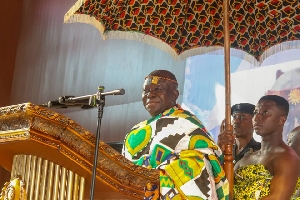Opinions of Saturday, 12 July 2014
Columnist: Public Agenda
Ghanaian Cultural Practices: An American “obroni” Observations
My time in Ghana has been an amazing and eye-opening experience. As a US citizen I find myself constantly comparing the customs of the Ghanaian people to my own. In these three short weeks I've observed some differences and similarities between the two cultures and their people.
I think the biggest cultural custom of Ghana that is most difficult to remember is the practice of not using the left hand. In the United States the left hand doesn't represent anything negative. Both the US and Ghana use the right hand for greetings and handshakes but I've never had to worry about using my left hand in everyday interactions. I find myself reaching for things with my left hand, waving at people, or gesturing until I remember it is an insult and then I worry I've offended the Ghanaians I'm interacting with.
The most disconcerting cultural practice of Ghanaians is when people walk up and down the very busy streets to sell you their wares as you sit in a vehicle. In the United States this wouldn't be allowed and never happens. The sheer amount and variance of items sold is also fascinating. I didn't expect to buy anything from papaya to car mats to puppies from my seat in a vehicle. I find myself worrying these salespeople will be struck by a vehicle as we drive by.
One of the more engaging cultural practices of Ghana is the welcoming nature of the people. Ghanaians will invite strangers to any event including: weddings, funerals and graduations while in America these events are invite-only and are kept to friends and family. Some of my friends have walked down the street before they are suddenly invited to these large gatherings. It seems that Ghanaians love to share a good party.
The biggest similarity I've observed between the United States and Ghana is the kindness of the people. Both cultures have different ways of showing this kindness but I firmly believe it exists in both nations. Ghanaians have helped me find my way around the city, on trotros and in taxis. I've really appreciated the Ghanaian people's efforts to help a confused and slightly shell-shocked “Obroni” because Accra is so vast in size and confusing to an outsider. The Americans show this kindness in similar ways although most won't offer help until asked but will assist anyone once prompted. The kindness I've received from the Ghanaian people has made the transition from my home in the US to my temporary abode in Ghana more enjoyable.
Ghana is an amazing nation with equally amazing people and customs. I feel very fortunate to observe this culture as an American and I look forward to discovering more similarities and differences as my time here progresses.












